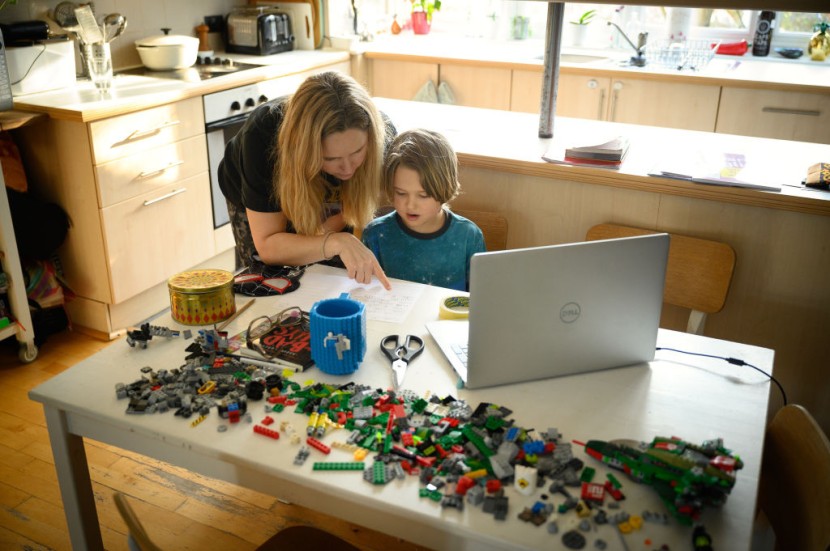
When Alberta mother Tina Teerling chose to homeschool her five children this past autumn, she aimed to give them back a sense of normalcy and remember the old normal before the pandemic.
After almost five months of homeschooling, she is pondering over continuing even after the pandemic is over.
Homeschooling Beyond the Pandemic
According to Teerling, who has children aged 3 to 9, "I've come to realize that traditional schooling doesn't line up with our values. I want our children to grow up and be able to critically think for themselves, to evaluate information they are given, not just recite it, and to be in search of information," reported The Epoch Times.
She added, "We are following our own program that is parent-led. Overall it has been an extremely positive experience."
The reality of homeschooling is a mother waking up at dawn to copy out worksheets for her children, secondary school pupils writing essays on their mobile phones, and younger children queueing to wait their turn on the sole computer in the house, according to the Child Poverty Action Group in the first United Kingdom lockdown in March 2020.
According to Kate Anstey, a project leader at the charity, "We spoke to thousands of parents, carers and children and the thing we heard was that up to 40% of them did not only not have access to a laptop or the internet, but also to other things like printers, even stationery and craft materials," reported BBC.
National homeschool curriculum Time4Learning released key findings of a national study assessing perceptions of homeschooling parents against those of the general population. The survey discovered that families who chose to homeschool during the pandemic had a more favorable attitude towards online learning. Seventy-nine percent shared their intention to continue learning through online resources to in-person learning following a return to the classroom.
Also Read : Online Learning Amid the COVID-19 Pandemic
Hanover Research's nationwide survey was initiated over two weeks, between November 16 and November 30, on behalf of Time4Learning among a cross-section of families, reported Cision PR Newswire.
Concerns over exposure to the novel coronavirus, instability in school schedules, and excessive screen time have prompted an unprecedented number of parents to homeschool their children this academic year. The shift may have permanent effects on both public schools and the homeschooling movement.
A nationally represented survey of parents by the EdWeek Research Center indicated that nine percent of parents who were not homeschooling their children the previous school year stated that they planned to homeschool their children at least some time of the current school year.
Could our "new normal" of balancing work and school from the comfort of our homes become a permanent way of life?
According to Hamilton Lombard, a researcher at the Weldon Cooper Center for Public Service at the University of Virginia, his study indicates the homeschooling (for K-12 children) and telecommuting that has prevailed since March 2020 could be here to stay.
Experts think the innovations teachers use amid the pandemic could lead to lasting change, with technology playing a significant role in schools in the future.
Related Article : Essentials for Looking Your Best in Video Conference Calls








